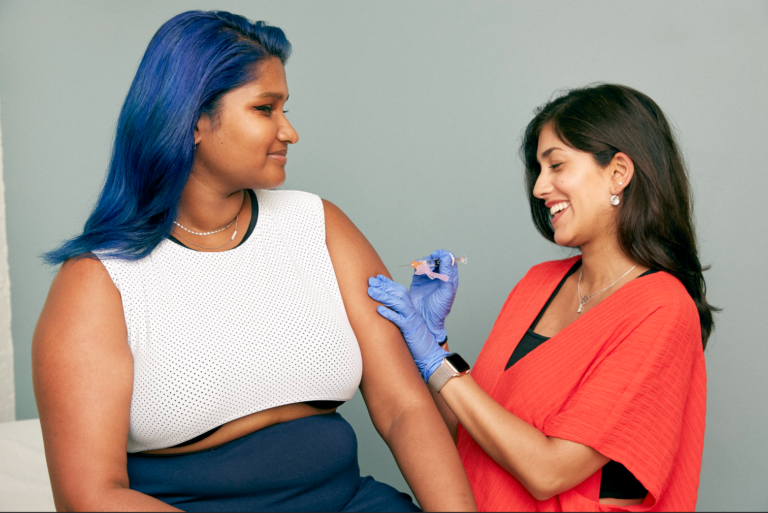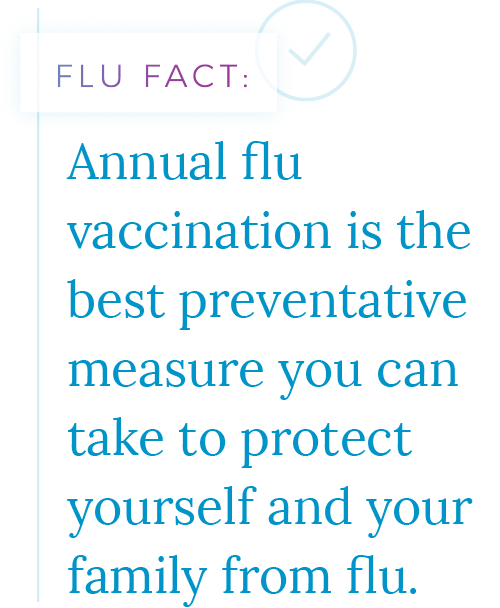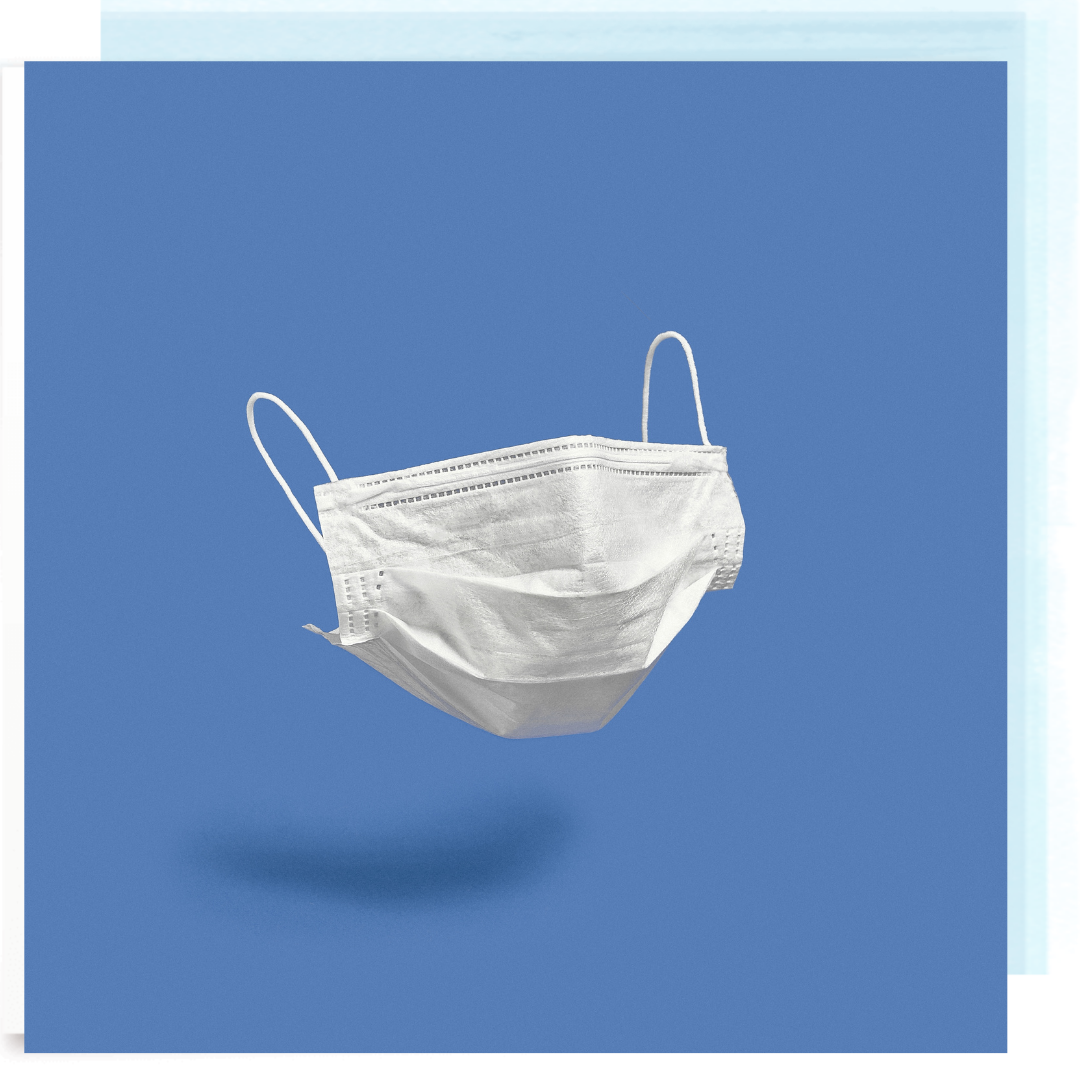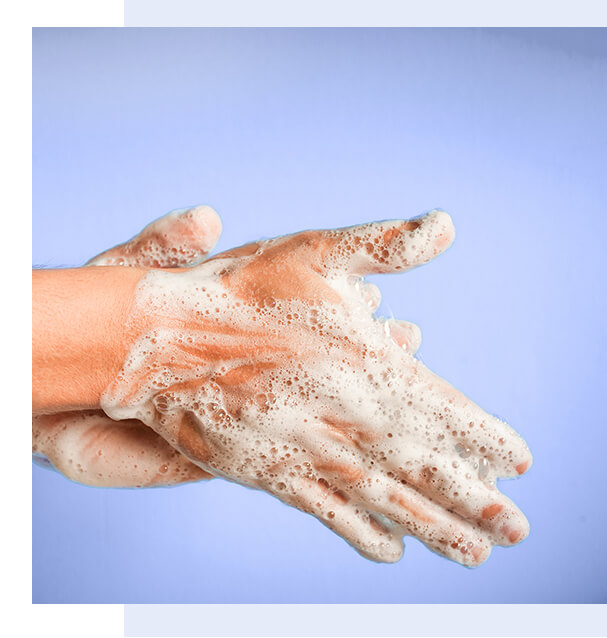Flu Prevention
Keep yourself and your family healthy with these simple steps:
1. Get vaccinated.
According to the CDC, influenza vaccination is safe and effective and is the single best way to help protect yourself and your family from the flu each year. Since the virus and the vaccine changes every year, it is important to get a flu vaccination annually.
Learn more about flu vaccines for people of different ages or with different health conditions.


2. Wear a mask
Wearing a mask can help prevent the spread of flu to others. When you and the people around you wear a mask, the infected individual is less likely to pass their flu illness onto others.


3. Wash your hands.
Frequent hand washing keeps lots of germs out of our bodies, including the influenza virus. If soap and water are not available, use a hand sanitizer.
4. Do the elbow cough.
Be sure to cough into your elbows instead of your hands. Coughing into hands is more likely to spread bacteria and viruses through touch.
Wearing a mask during the COVID-19 pandemic can also help prevent the spread of germs that cause flu.


5. Avoid touching your eyes, nose, or mouth.
Germs spread this way.
6. Clean and disinfect surfaces or objects.
Clean and disinfect frequently touched surfaces at home, work, or school, especially when someone is ill.


Jewel had not been vaccinated against the flu when she was hospitalized with flu-related complications for over 3 months. Now, she and her family get vaccinated each and every year to help prevent this life-threatening illness.
Common Questions About Flu Prevention:
While holistic approaches like vitamins and supplements may have beneficial properties in some instances, there is no evidence that they can prevent flu as well as a flu vaccine.
The CDC recommends that all people ages six months and older, unless otherwise told by their doctor, should receive a flu vaccine every year by the end of October.
While a healthy diet and exercise can improve overall health, flu is an infectious disease that is best prevented through vaccination, allowing your immune system to build antibodies to circulating viruses.
Sleep is important for the immune system, but there is no evidence that sleep alone can prevent flu illness. People infected with flu may need to sleep more than usual to help the body and immune system to recover.
Visit these other pages to learn more:
Page last reviewed: October 2021.



